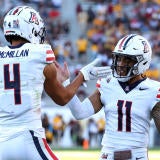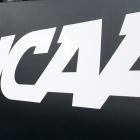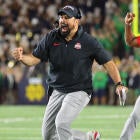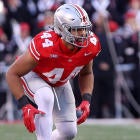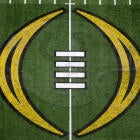The NCAA took a massive step toward allowing players to profit off of their name, image and likeness on Wednesday in what is a clear sign of progress and an added focus on the student-athletes. Thursday brought a sign that the NCAA's dedication to student-athletes might not be as important as it was just 24 hours before.
The Division I Board of Directors and Presidential Forum recommended against undergraduate players in football, men's and women's basketball, baseball and hockey being granted the same one-time transfer exception currently utilized by athletes in other collegiate sports. Undergraduate players in those five sports currently have to sit one year in residence before regaining eligibility.
The recommendation comes after the NCAA Transfer Waiver Working Group issued its intent to seek feedback on the proposal in February. MAC commissioner Jon Steinbrecher, the chair of the transfer working group, told CBS Sports senior writer Dennis Dodd earlier this month that the coronavirus pandemic could play a part in the board's recommendation.
"It's being pushed back because people are buried," he said. "[They're] trying to keep the doors open besides doing the business of the association."
This development doesn't mean the issue is dead by any means. The NCAA board simply concluded the one-time transfer concept was too complicated to recommend pursuing it right now as it will require formal legislation -- instead of a mere tweak to existing transfer rules.
The issue had become so complicated the board had issued a moratorium on any changes to the transfer environment. The board did lift the moratorium on transfer legislation for the 2020-21 legislative cycle, meaning the proposal could pass when the Division I Council votes on guideline changes as early as May.
"That's why you saw coming out of the last NCAA Council meeting was our request to lift the legislative moratorium," Steinbrecher told CBS Sports. "Then the board gave clear direction here the desire for a comprehensive solution. This opens the door to continue that momentum, puts a timeline on it. Let's get moving, identify the legislative pieces and proceed."
Steinbrecher also said a one-year "stair-step" approach testing one-time transfer options had too many issues.
"It didn't have a mechanism to deal with the APR aspect, a way to deal with a notification [to transfer] date, how to deal with graduate transfers," he said. "You start stacking this up, pretty soon you have a pretty big list.
"It would have [actually] taken two years to get to where it needed to be. I think this was an acknowledgement of, 'Don't try to piecemeal it.'"
The one-time transfer idea gained steam over the last year after the NCAA seemed to loosen the reins on immediate eligibility waivers granted to undergraduate student athletes. That allowed current Ohio State quarterback and 2019 Heisman Trophy finalist Justin Fields to play after transferring from Georgia. Fields' move then instigated current Miami wide receiver and former Ohio State quarterback Tate Martell to transfer to the Hurricanes.











